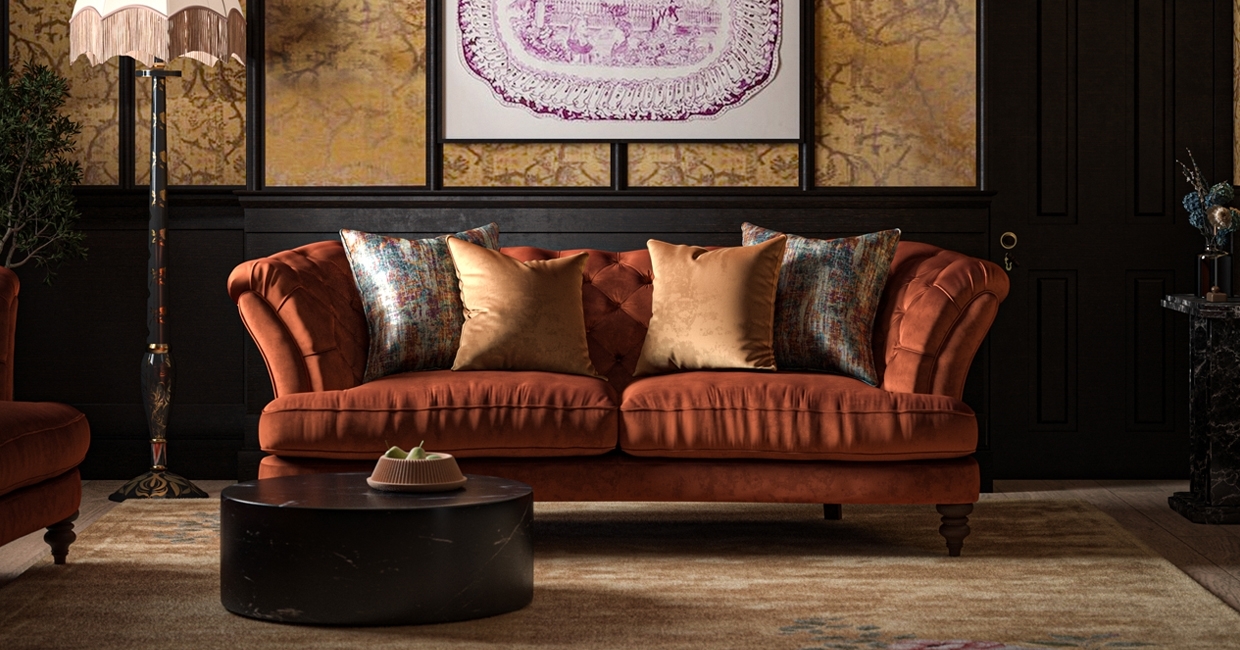From its four production sites in North Wales, Westbridge (part of the Belfield Group) makes in excess of 10,000 pieces of upholstery each week – and is constantly exploring new ways of working, explains sales director (independent retailers) Nichola Bell …
Are you seeing any new design or selling trends?
For some time now, we’ve seen the obvious (and necessary) increase in ‘eco’ sofas, which give the consumer the choice to purchase more sustainable and environmentally friendly furniture. It starts with ‘responsible manufacturing’, and comes in various degrees of sustainability.
We’ve also seen a slight move away from true velvets and a gentle nudge to cheniles and other soft-textured fabrics.
It’s great to see that colour is still a strong trend. In a world of ever-increasing price rises, I feel customers are looking for more added value, and an extra story to the product – whether it be sustainability, ‘clever’ fabrics, or storage ideas.
How are you managing lead time pressures, and what are you doing to future-proof staffing and skills?
Having the benefit of three manufacturing sites in North Wales gives us the advantage of managing our lead times very well. The biggest issue has been supply constraints, which has meant a lot of ‘juggling’ of the order book – our operations team have had the toughest of jobs recently.
We have a very loyal workforce, but still suffer from the skills shortage across our industry. We, like many manufacturers, have an extensive apprenticeship programme and incentives running to attract our future stars. We’ve found that flexible working, forced upon us by Covid restrictions, have actually had a very beneficial effect on our workforce and productivity.
Have you developed any new strategies for material/cost management?
We’ve taken a holistic approach to managing the constant surge of recent price increases. Our procurement team are constantly challenging increases and sourcing new supply, but also working with our innovation team to look at alternative ways to make product that challenges current methods (and therefore certain raw materials). It may be that although we cannot control prices, we can control what and how we make – but it’s a constant battle.
What elevates British-made upholstery above the imports?
British upholstery has certainly come into its own these last couple of years, and now more than ever I feel the ‘Buy British’ message should be even more important.
We can offer short lead times (six weeks), and a MTO offering with a huge amount of choice that’s not restricted by container options, as well as the on-hand personal touch to rectify any issues as quickly and painlessly as possible. Surely that alone is worth shouting about? We have some fantastic upholstery manufacturers in the UK, and we need to ensure the longevity of our industry.
How do you convey the strength of ‘British made’ to stockists and consumers?
As a member of both the BFM and The Furniture Makers’ Company, I am personally very passionate about the importance of British manufacturing, and I feel we could work better with stockists to help them ‘push’ the British-made aspect to consumers.
Let’s not be ashamed of shouting about what’s British on the showroom floor – if we did more of it, perhaps the consumers would become more engaged in asking where their furniture comes from.
See July's issue for more on the evolution of the British furniture manufacturing sector.
Pictured: Muse









